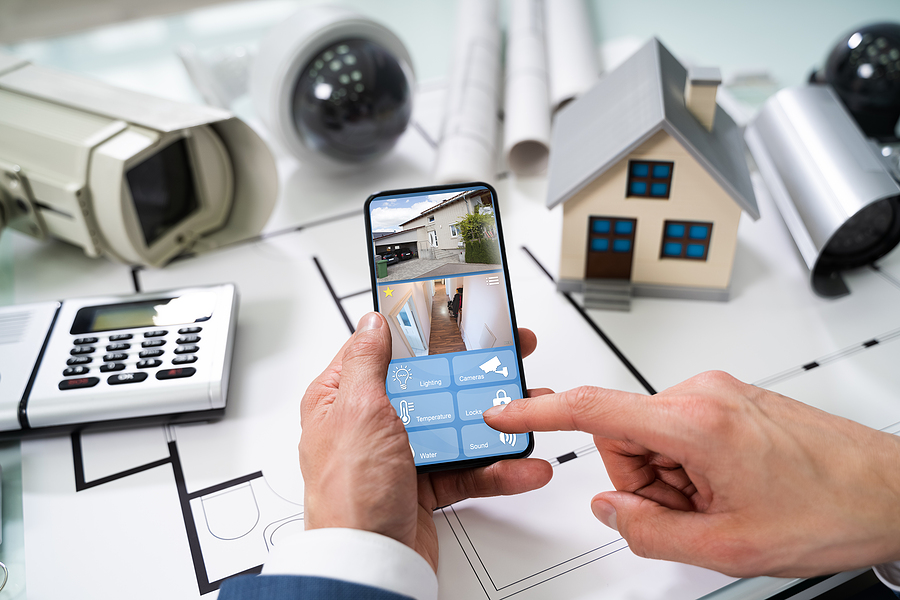Among the various lists of 2020 forecasts, industries were not prepared for last year’s biggest plot twist. When COVID-19 hit, not only did it alter the economy, it changed our entire lives. As different markets experienced a sudden drop in demand, many companies were forced to let some people go.
2020’s unmet expectations
When National Geographic predicted a rise in microcations (micro-vacations) and wellness trips last January 2020, we would soon realize that there would be no vacations at all. Instead, we had to take our work home while essential workers took to the frontlines. When experts predicted micro-chain restaurants setting culinary trends, these small businesses were forced to close up shop. Online deliveries rose in popularity
As we enter 2021 with a new virus strain, sporadic lockdowns, and the urgent authorization of new vaccines, the revival of different industries is yet to be discussed.
For the home security industry, Technavio tells a different story. They were able to predict the steady growth of the connected home security system market from 2020 to 2024. Many customers found that not only was it an efficient way for them to monitor their home (even when they are in the office), but it was also a cost-effective method and saves on electricity bills.
When COVID hit, some unexpected factors such as unemployment and social distancing regulations affected these numbers. However, as the majority of the population began transitioning to a work-from-home setup, Technavio’s predictions saw fruition.
During the first half of 2020, FBI reports showed that cities like Seattle and San Francisco experienced a drastic increase in burglaries. Across America, car thefts, break-ins, and arson have been more common. Installing a robust security system, then, became a top priority, especially when groceries started running out of stocks and looting increased.
With the drastic change in demand, the home security industry has received a newfound interest.
What to expect in 2021
Entering 2021 with these new experiences, our new normal has evidently changed. According to Forrester, 47% of employers believe that most of their employees may permanently work from home after the pandemic, with 53% of employees concurring. With more time at home, Reportlinker shows that the home security systems market may reach $78.9 billion by 2025.
The home security system has evolved and improved over the years. Compared to traditional systems, smart homes are now able to keep an eye on your home 24 hours, seven days a week. Compared to a traditional security system, if you forget to arm the system, your home is left defenseless to theft and robbery. Whereas the latest home security technology sends you real-time alerts even if you have left it disarmed. With cameras that are capable of face recognition, you will receive an alert when your children arrive from school, when a window is left open for an extended period of time, or when a code-protected cabinet is opened.
The system has grown to become more efficient and user-friendly. Families no longer need a contractor to install the devices for them because configuration processes are easier and have a step-by-step easy-to-follow process.
Once this is set-up, it is also easy to use. Even as you are asleep, you can create specific configurations that will alert you of any emergency you deem important. For example, parents with a newborn child can connect their baby monitor to the overall home security system. This allows them to get an alert when the baby starts fussing or crying. The same can be said when you leave your home for a two-week trip, you can re-configure your home to stay armed for that same amount of time. It eases any anxiety that you may have and enjoy your holiday in peace.
In the event of an emergency such as a home invasion or a break-in, most systems set off an alarm, automatically dial 000, and contact security. As these can be controlled from your mobile phone, you can be alerted of intruders right away and lock specific doors. Not only can you stay fully protected, but you can keep an eye on the intruders’ every move while waiting for authorities to arrive on the scene.
Integrating different devices that complement one another is the new craze this 2021. Harmonious Technology is not only applicable in the home security market, but also within communications solutions, as well. As an example, no one will buy Apple AirPods with their Samsung Galaxy. The same is applicable when installing a connected home security system.
Gradually, customers will let go of devices that do not integrate with their smart mobile app, which gives them the ability to monitor home security. If this device cannot be controlled from a single app, then its chances of getting disposed of are high.
Aside from being able to monitor your home from a single source, a connected smart home protects your health bubble. By definition, the health bubble the group of people, usually from different households, you spend time with during the pandemic. While having trusted friends and family over can ease the feelings of isolation, the government recommends limiting face-to-face contact as much as possible.
Having smart home security can make this dilemma more manageable. Video security cameras that have two-way talk features or video doorbells can bring you (physically) closer to your loved ones without putting their health at risk. Because you’re also controlling your home’s security features through your phone, your high-touch areas such as your door locks, light switches, and thermostat buttons can stay virus or bacteria-free for longer periods of time.
As we are facing a new kind of normal, one that requires us to be more compassionate towards our household members, neighbors, and our friends, we’re seeing that 2021 is a year where we can put an upgrade to that. Thanks to technology, we’re finding ingenious ways to protect our homes from security breaches and from health issues.

